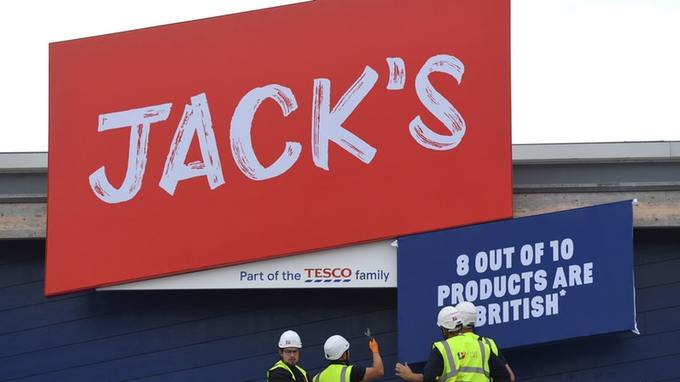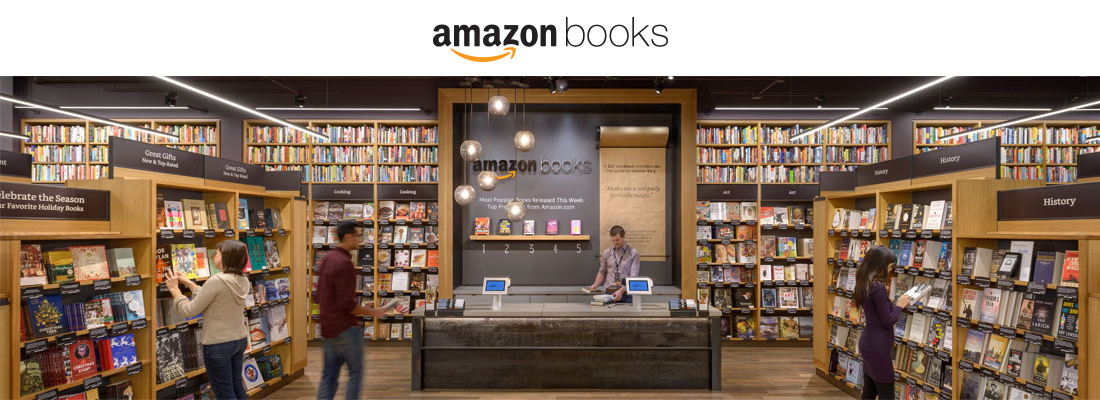 It is probably fair to say that many hypermarket and supermarket chains have been slow to respond to the threats posed by massive changes in shopping behavior and retail structure. Sure, many have launched an online offer. Many have responded to the profit hit by squeezing their supplier base too. They’ve doubled down on discounts. But in terms of the overall offer to shoppers, not much has changed. Take a look at a supermarket from ten years ago, and much of it looks pretty much the same as today. But that is beginning to change. Supermarket and hypermarket operators are shifting their strategies. Will these retail strategy shifts bring pain or opportunity to manufacturers? Spoiler: it isn’t going to be pretty! How prepared are you to deal with a wounded giant? Let’s look at a recent news story from the UK to understand how things might play out.
It is probably fair to say that many hypermarket and supermarket chains have been slow to respond to the threats posed by massive changes in shopping behavior and retail structure. Sure, many have launched an online offer. Many have responded to the profit hit by squeezing their supplier base too. They’ve doubled down on discounts. But in terms of the overall offer to shoppers, not much has changed. Take a look at a supermarket from ten years ago, and much of it looks pretty much the same as today. But that is beginning to change. Supermarket and hypermarket operators are shifting their strategies. Will these retail strategy shifts bring pain or opportunity to manufacturers? Spoiler: it isn’t going to be pretty! How prepared are you to deal with a wounded giant? Let’s look at a recent news story from the UK to understand how things might play out.
Let’s look at United Kingdom retailer Sainsbury (who, once their merger with Asda is complete, will be the largest player in the UK grocery market). They’ve announced that they are going to increase their focus on beauty, creating a ‘department store-style’ environment, doubling the number of products, training specialist staff, bringing in new suppliers etc. What impact will this retail strategy shift have on the manufacturers that currently supply Sainsbury? Firstly, let’s look at the incumbent beauty suppliers.
Are retail strategy shifts good news or bad news for brands?
One might at first think that this new retail strategy would be greeted as great news in the corridors of Sainsbury’s current beauty suppliers. But not so fast. There are plenty of threats even when a retailer focuses on your category:
– New competitors – Sainsbury has made it clear that they plan to bring in new suppliers, potentially some of them exclusive. Some of those might be quite excited to get a Sainsbury listing, and might bend over backwards to give Sainsbury the support they ask for. Incumbents might face more competition, and competitors who are treated favorably by the biggest retailer in the land.
– New investment requirements – Sainsbury has also mentioned concessions, training of staff, improved environments. Who is going to pay for this? Sainsbury will be looking to its suppliers to fund this for sure.
– Price – Sainsbury haven’t mentioned price, but I’d bet that price will be part of the mix. With Sainsbury focusing on the category, price competition could intensify, and suppliers could easily get caught in the crossfire: pressured to drop prices, fund promotions, and manage cross-channel discrepancies.
– Private label – Sainsbury has suggested it will push its private label brand in this space as well. Private label will increasingly be used as a weapon of differentiation in key strategic categories, and will take the focus away from mainstream, ubiquitous brands.
Retail strategy shifts impact ALL brands
And those of you who aren’t in the beauty category – don’t relax. The change in retail strategy will impact you in several ways too:
– A shift in focus in the longer term. Big box retailers may have been slow to respond to the threats they are facing in the light of new competition and changing shopper behavior. But that Is changing. As retailers recognize that change is required, they will start to focus on categories where they think they can win. And that means there will be less focus on other categories. If your category isn’t important to the retailer or their shoppers, or it isn’t seen as a category that can help the retailer ‘win’ – expect less space and smaller ranges. Expect tighter inventories, as cash is diverted to strategically important categories.
– Expect pressure on margins – If your category isn’t a strategic ‘win’ category, that doesn’t mean it will be left alone. Retailers manage categories (and suppliers) as a portfolio – much as suppliers manage their brands. Categories that don’t add strategic value will be shrunk or treated as a source of profit. Do you want your category or brand to become a cash cow?
– Private label – In a world where most of the products in a hypermarket or supermarket offer little differentiation, the importance of private label grows significantly. Expect retailers to push the boundaries of what can be done in terms of share of space and range for private label.
Retail strategy shifts affect other customers too
And of course, if Sainsbury are successful, this will have an impact on department stores and drug stores – the channels that currently dominate beauty product sales. If you sell to these companies: have you thought about the impact this might have on you? Will department stores respond? And if so, how will they shift their retail strategy, and how might that affect your business? Wherever you are in the industry, never assume that a change of retail strategy in one sector won’t affect you.
Retail strategy is changing – don’t get caught off guard
As retailers around the world wake up to the threats that retail disruption brings, they are making changes to their business models. We’ve just completed a study on what is going on these changes in the UK and the impact they are having on the industry – and the results are alarming! Some of these things will be short term, some long term. The response to all of these challenges is complex and will require a comprehensive and multi-functional approach from suppliers. This isn’t a ‘sales thing’. Whichever country you operate in, whichever category you focus on, whichever function you are in: the changes that are taking place at retail demand your attention now. Even if these changes seem like a distant threat today: beware complacency. Changes can happen very quickly, and even a small change in shopping behavior can have a disproportionate impact on your business. Act now. And if you’re not sure where to start, don’t panic. Give me a call, and we’ll get you started.





